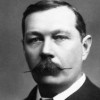He that waits upon Fortune, is never sure of a Dinner.
Benjamin Franklin (1706-1790) American statesman, scientist, philosopher, aphorist
Poor Richard (1734 ed.)
(Source)
Quotations about:
presumption
Note not all quotations have been tagged, so Search may find additional quotes on this topic.
But to give one’s advice to others, unasked, is, in effect, to declare that we are much wiser than those to whom we give it; and is a kind of reproaching them with their ignorance and inexperience.
[Il proferire il tuo consiglio non richiesto niuna altra cosa è che un dire di esser più savio di colui cui tu consigli, anzi un rimproverargli il suo poco sapere e la sua ignoranza.]
Giovanni della Casa (1503-1556) Florentine poet, author, diplomat, bishop
Galateo: Or, A Treatise on Politeness and Delicacy of Manners [Il Galateo overo de’ costumi], ch. 18 (1558) [tr. Graves (1774)]
(Source)
(Source (Italian)). Alternate translations:
To offer advise, unrequested: what is it els but to vaunt youre selfe wiser then he is, whom you do counsell : nay rather it is a plaine checke to him, for his Ignoraunce and folly.
[tr. Peterson (1576)]
To offer your advice unasked, is nothing else than to assert that you are wiser than he to whom you offer it.
[Source (1909)]
To offer your advice without having been asked is nothing else but a way of saying that you are wiser than the man to whom you are giving advice, and even a way of reprimanding him for his limited knowledge and his ignorance.
[tr. Eisenbichler/Bartlett (1986)]
You will always find some Eskimos ready to instruct the Congolese on how to cope with heat waves.
Stanislaw Lec (1909-1966) Polish aphorist, poet, satirist
Unkempt Thoughts [Myśli nieuczesane] (1957) [tr. Gałązka (1962)]
(Source)
To me, at least, the greatest blasphemy in the world is not the denial of God’s existence, but the claim that we have a pipeline to Him, and that all other claimants are wrong. This assertion is what plunged the world into the bloodiest of wars in the past, and might well do so again if the zealots had their way.
Sydney J. Harris (1917-1986) Anglo-American columnist, journalist, author
“Strictly Personal” column (20 Jan 1985)
Reprinted in Clearing the Ground (1986)
It was one Sunday evening early in September of the year 1903 that I received one of Holmes’s laconic messages: “Come at once if convenient — if inconvenient come all the same. S.H.'”
Arthur Conan Doyle (1859-1930) British writer and physician
“The Adventure of the Creeping Man,” Strand Magazine (Mar 1923)
(Source)
Reprinted in The Case-Book of Sherlock Holmes (1927).
We do not quite forgive a giver. The hand that feeds us is in some danger of being bitten. We can receive anything from love, for that is a way of receiving it from ourselves; but not from any one who assumes to bestow.
Ralph Waldo Emerson (1803-1882) American essayist, lecturer, poet
“Gifts,” Essays: Second Series, No. 5 (1844)
(Source)
There is no great invention, from fire to flying, which has not been hailed as an insult to some god.
J.B.S. Haldane (1892-1964) English geneticist [John Burden Sanderson Haldane]
“Daedalus, or Science and the Future,” speech, Cambridge (24 Feb 1923)
(Source)
Deserves death! I daresay he does. Many that live deserve death. And some die that deserve life. Can you give that to them? Then be not too eager to deal out death in the name of justice, fearing for your own safety. Even the wise cannot see all ends.
J.R.R. Tolkien (1892-1973) English writer, fabulist, philologist, academic [John Ronald Reuel Tolkien]
The Lord of the Rings, Vol. 2: The Two Towers, Book 4, ch. 1 “The Taming of Sméagol” (1954)
(Source)
Frodo recalling the words of Gandalf (approximately) in The Fellowship of the Ring.
What this country needs is a short, victorious war to stem the tide of revolution.
Vyacheslav von Pléhve (1846-1904) Russian Tsarist security director, Interior Minister [Vyacheslav Konstantinovich von Plehve, or Pleve; Вячесла́в Константи́нович фон Пле́ве]
Comment (1903) [tr. Walder (1974)]
(Source)
Regarding the impending Russo-Japanese War (1904-05). Possibly apocryphal; the comment is quoted in the memoirs of Count Sergei Witte, an opponent of Plehve, several years later (and well after Plehve's 1904 assassination). Witte recounted it as a retort by Plehve to General Alexey Nikolayevich Kuropatkin, who accused Plehve of supporting the conflict for adventurist/expansionist reasons.
Russia, though considered much stronger than Japan militarily, ended up losing the war, destabilizing the government and ironically leading to revolutions in 1905 and 1917.
Alternate translations:
- "We need a little victorious war to stem the tide of revolution." [tr. Yarmolinsky (1921)]
- "We need a little, victorious war to stem the revolution." [tr. Harcave (1990)]
- "To contain the revolution, we need a short victorious war." [tr Hodson (2017)]
Of course God will forgive me; that’s his job.
[Bien sûr, il me pardonnera; c’est son métier.]
Heinrich Heine (1797-1856) German poet and critic
Last Words (1856)
Quoted in German in Alfred Meißner, "Heinrich Heine. Erinnerungen," Letzte Worte auf dem Totenbett (1856). Quoted in Bros. Goncourt (ed.) Journal (23 Feb 1863). Quoted in French in Sigmund Freud, The Joke and Its Relation to the Unconscious (1905) [tr. J Crick (2003)].
Alt trans.: "Why, of course, he will forgive me; that's his business. [Gott wird mir verzeihen, das ist sein Beruf.]
See Catherine the Great.
Most human beings have an almost infinite capacity for taking things for granted.
Aldous Huxley (1894-1963) English novelist, essayist and critic
“Variations on a Philosopher,” Themes and Variations (1950)
(Source)
Deserves it! I daresay he does. Many that live deserve death. And some that die deserve life. Can you give it to them? then do not be too eager to deal out death in judgment. For even the very wise cannot see all ends.
J.R.R. Tolkien (1892-1973) English writer, fabulist, philologist, academic [John Ronald Reuel Tolkien]
The Lord of the Rings, Vol. 1: The Fellowship of the Ring, Book 1, ch. 2 “The Shadow of the Past” [Gandalf] (1954)
(Source)
Frodo later recounts these words (approximately) to Sam in The Two Towers.













